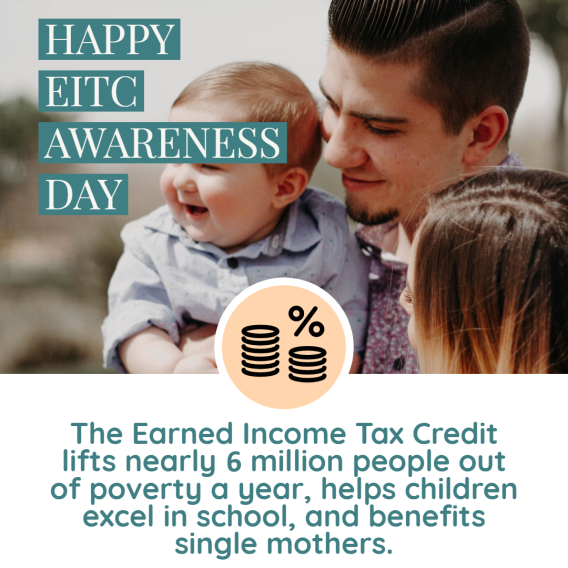Some LGBTQ+ individuals and families may be unsure of their tax filing status or tax credit eligibility. For example, marriage, a civil union, and a domestic partnership may be treated differently for federal and state tax filing purposes. This may prevent some LGBTQ+ people from claiming tax credits like the Earned Income Tax Credit (EITC) and the Child Tax Credit (CTC).
These tax credits can be valuable for LGBTQ+ people, who tend to experience higher rates of poverty and homelessness. Outreach efforts can help inform members of the LGBTQ+ community of tax benefits they may qualify for — like the EITC and CTC — which can help build financial stability.
CONNECT WITH
- LGBTQ+ community centers
- Social venues
- Gender–affirming care providers
- HIV/AIDS prevention organizations
- LGBTQ+ professional affinity groups or networks
- Adoption agencies that are inclusive of LGBTQ+ families
STRATEGIES
1. Partner with local LGBTQ+ community centers.
LGBTQ+ community centers are established and trusted sources of information located in all 50 states and the District of Columbia, which makes them an important resource for conducting outreach efforts in a specific geographic location. These centers can effectively share tax credit messaging and materials to reach LGBTQ+ people and allies. LGBTQ+ community centers often offer workshops, Pride events, and community gatherings that may include tabling or other opportunities to share information about tax credits and tax filing. Locate your local LGBTQ+ community center.
2. Connect with businesses and employers that are allies to the LGBTQ+ community.
Invite local businesses and employers that support the LGBTQ+ community to participate in tax credit outreach activities. They can share tax credit information that can directly reach both LGBTQ+ workers and community members. Some businesses and employers may have spaces to display print messages or flyers. You can also use other outreach strategies to engage businesses and employers. Reach out to your local or regional LGBTQ+ chamber of commerce to find local businesses in your community.
3. Work with adoption agencies.
LGBTQ+ families are more likely to adopt children. In addition to qualifying for the EITC and CTC, adopted children may be eligible for the adoption tax credit. Families that include other members who don’t qualify for these credits may be able to claim the Credit for Other Dependents, which can reduce the amount of taxes owed. Ask adoption agencies to share information about these tax credits through mailings or to talk about them during at-home visits. Find an LGBTQ+ inclusive adoption agency.
4. Reach out to gender–affirming care providers.
Work with local gender–affirming health and care providers who can share information about eligibility for medical expense deductions for gender-affirming care (such as surgery or hormone therapy) and HIV-related care. These providers can help LGBTQ+ patients and clients understand which medical expenses qualify for tax exemptions and help them secure the documentation needed for tax time. Keep in mind that one must itemize their tax return to claim medical expense deductions, and this may not be beneficial for some people depending on their financial circumstances. Find local LGBTQ+ affirming health care providers.
5. Share information about the 2021 expanded Child Tax Credit and expanded Earned Income Tax Credit.
The 2021 American Rescue Plan included multiple temporary one-year tax credit changes. The 2021 expanded Child Tax Credit (CTC) is worth up to $3,600 for each child under the age of 6 and $3,000 for each child aged 6 through 17. The 2021 expanded Earned Income Tax Credit (EITC) is worth up to $1,500 for workers not raising children or up to $6,700 for workers raising children in their home.
People who were eligible for the 2021 expanded CTC or the 2021 expanded EITC and who didn’t claim them can file a 2021 tax return by April 18, 2025. Learn more about filing prior year taxes.
ADDITIONAL RESOURCES
- LGBTQ+ Community Center Directory – CenterLink
- Tax Law Issues for LGBTQ+ Couples and Individuals – Justia
- What You Should Know About Same-Sex Marriage Tax Benefits – Investopedia
- Internal Revenue Service Resources:
- LGBTQ+ Chamber of Commerce Directory – National LGBT Chamber of Commerce
- Gender Affirming Care Referral Resources – Planned Parenthood









